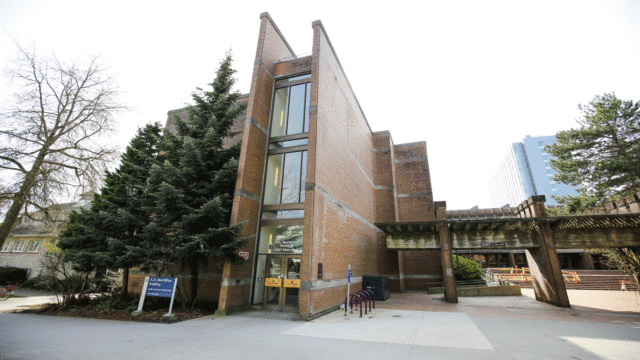Examine critical issues in local and global food production and distribution using the lens of economics, business management, and interdisciplinary science in the Food and Resource Economics program.
Why this program?
- Gain specialized knowledge in the economics of global food markets
- Tackle critical issues, such as climate change and fresh water depletion
- Develop highly valuable skills in data analytics, which are increasingly important in today's big-data world
- Graduate well-positioned to pursue a Master of Food and Resource Economics or another master's degree
Program information
Send details- Campus: Vancouver
- Faculty: Faculty of Land and Food Systems
- Degree: Bachelor of Science in Food and Resource Economics
- Length 4 yrs
-
Co-op
Yes
You can combine your studies with full-time, paid work at top local and international organizations.
-
Honours
No
You can study intense specialization in a single field.
Learn more about the limits of the market and the role of government in making the global food supply more efficient and equitable.
Find out how to identify the most effective way for society to deal with natural resource and environmental degradation.
As a Food and Resource Economics student, you’ll work with large data sets, completing visualizations and statistical analysis, to develop the tools you need to be effective in a wide range of employment situations after graduation.
You cannot apply to the Food and Resource Economics program as a first-year student. After a year at UBC, you can apply for this specialization as long as you meet the requirements.
Experiential learning and research
If you’re curious about research, use directed studies coursework and/or a research thesis to drill down into a topic area of personal interest.
The program’s small size ensures that you’ll be able to work with a professor during the last two years of your studies.
Send detailsLife at UBC's Vancouver campus
As a Food and Resource Economics student, you'll have access to the amazing talents and diverse perspectives of instructors in the Food and Resource Economics group, the Vancouver School of Economics, and the UBC Sauder School of Business. Flexibility and opportunity are key strengths of the program.
Find out moreYour future
As a Food and Resource Economics graduate, your knowledge of the increasingly important food and natural resource sectors, your critical thinking and data analysis skills, and your ability to conduct independent research will set you apart in the job market.
Choose the suite of business management electives to strengthen your employment opportunities in the agribusiness sector, in fields such as agricultural finance. Or enhance your skills further with a Master of Food and Resource Economics, or an MA, MSc, or MBA.
